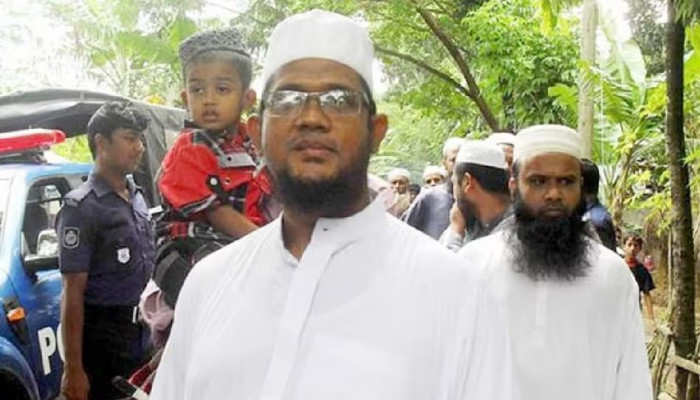Northeast on high alert as Bangladesh releases terror group chief
- In Reports
- 11:22 AM, Aug 28, 2024
- Myind Staff
The caretaker government in Bangladesh, led by Nobel Peace laureate Muhammad Yunus, has released Jashimuddin Rahmani, the chief of Ansarullah Bangla Team (ABT), an al-Qaeda affiliated terrorist group. The release is troubling for India, especially for Assam and Tripura, as the terrorist group has been attempting to establish a jihadi network through sleeper cells.
Rahmani, who was jailed for the murder of blogger Rajib Haider on February 15, 2013, was released on parole from the Kashimpur High Security Central Jail in Gazipur on August 26, according to the Dhaka Tribune.
Several terrorists affiliated with the Ansarullah Bangla Team (ABT) have been arrested in India previously. In May 2023, the Assam Police arrested two ABT-linked terrorists, Bahar Mia and Rarely Mia, at Guwahati railway station.
Sources informed India Today that the Pakistan-based Lashkar-e-Taiba (LeT) has reportedly teamed up with the ABT to conduct terrorist attacks in India’s northeastern states. In 2022, LeT and ABT collaborated to establish a base in Bengal with the intent of launching attacks in India.
Intelligence reports also suggest that approximately 50 to 100 ABT cadres were planning to infiltrate Tripura.
The Assam Police has repeatedly arrested ABT terrorists, thwarting the group's efforts to establish a network in Assam.
Assam Chief Minister Himanta Biswa Sarma has also noted that ABT jihadis avoid regular communication tools, instead using highly encrypted devices to evade detection.
As Prime Minister of Bangladesh, Awami League leader Sheikh Hasina has consistently considered India's security concerns in her policies and decisions.
With the overthrow of the Sheikh Hasina regime following violent nationwide protests, India feared that hostile forces could shift from the periphery to the centre, posing a greater threat to its interests.
Sheikh Hasina had taken strong measures against anti-India factions, leading a segment of the Bangladeshi population, particularly those pro-Jamaat and pro-Pakistan, to view New Delhi's role with suspicion. A political narrative emerged suggesting that Hasina clung to power in Bangladesh with active support from India.
There have been instances where anti-Indian sentiments have surfaced. Shortly after Sheikh Hasina's re-election in January, a social media campaign calling for a boycott of Indian goods gained traction. Additionally, the recent devastating floods in Bangladesh have been blamed on India, although New Delhi has rejected these claims, providing evidence to counter the allegations.
Image source: India Today NE







Comments